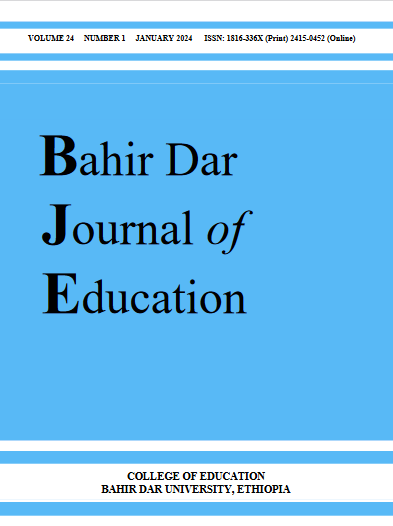Main Article Content
Assessment of primary and middle schools’ learning of post-1994 instructional reforms: The organizational learning perspective
Abstract
Using Organizational Learning (OL) as a theoretical lens, this study examined the perceived level of OL in primary and middle schools in the Amhara Regional State, Ethiopia. To this end, a descriptive survey design involving 785 teachers selected from 48 primary schools was used. Data was collected using standard questionnaires and analyzed using various statistical tools. The results showed that target schools had a mean that is slightly above average in learning the instructional reforms, but the magnitude varies with school level, and level of implementation of continuous professional development. Regarding learning agency, team learning and school-level learning were found higher than learning at personal agency. However, most teacher and school-level variables did not result in significant variation in school as LO probably due to the deep-rooted tradition of top-down reforms. From the results, it is understood that OL in primary schools, especially in Level III schools, is taking root through collective agency, but some fundamental constructs and features of LO were overlooked. This calls for the need to align the schools’ standardization guidelines to the constructs and features of LO. Moreover, it sounds well to revisit the long-held top-down tradition of introducing reforms.







